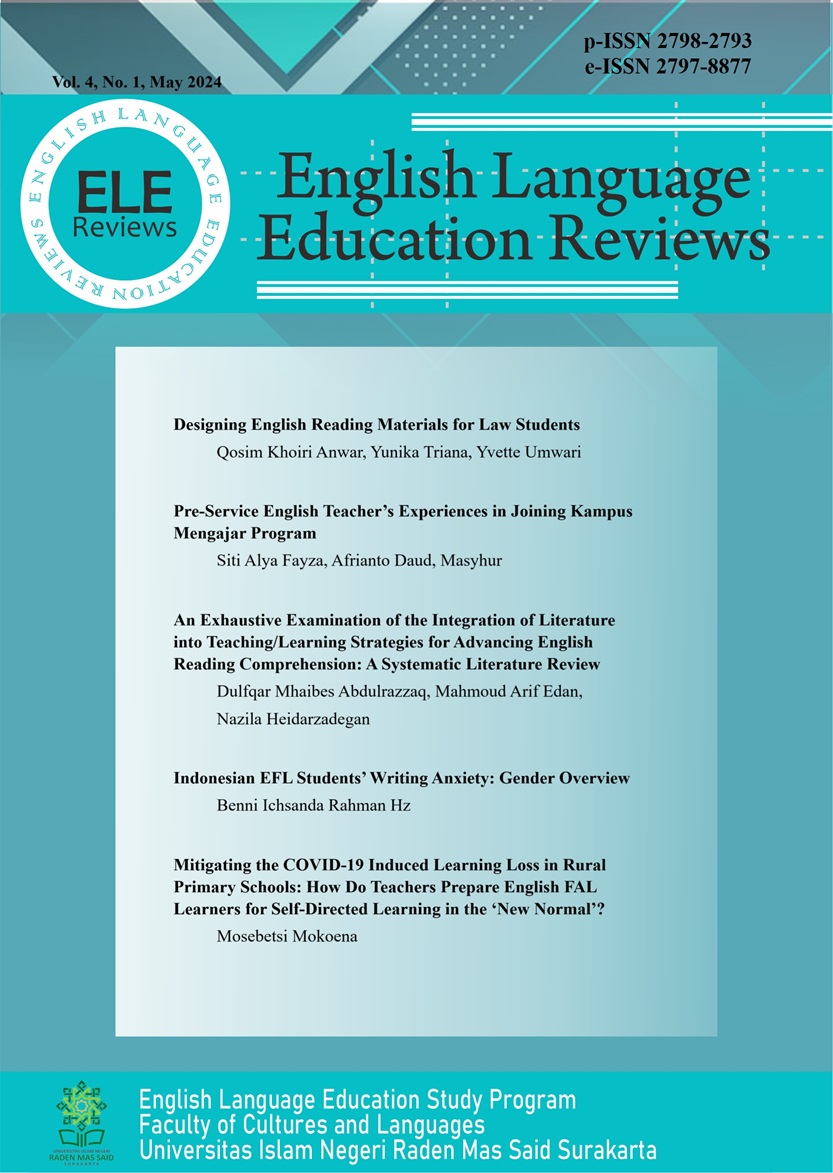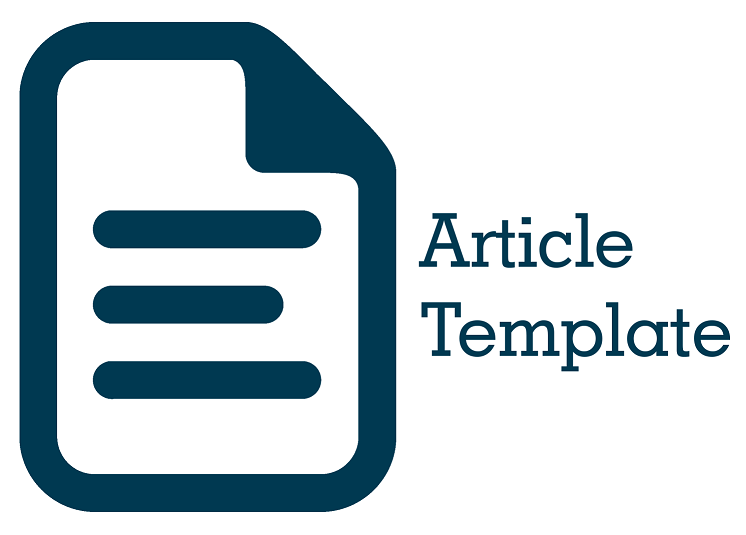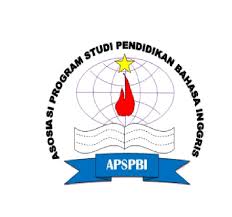Mitigating the COVID-19 Induced Learning Loss in Rural Primary Schools: How Do Teachers Prepare English FAL Learners for Self-Directed Learning in the ‘New Normal’?
DOI:
https://doi.org/10.22515/elereviews.v4i1.8726Keywords:
COVID-19, English First Additional Language, learning loss, rural schools, self-directed learningAbstract
In the post-pandemic era, the ongoing discourses are centered around finding innovative ways to sustain teaching and learning as well as reversing COVID-19-induced learning loss, especially in critical areas, such as reading in English First Additional Language (FAL). As a contribution to these discourses, the current study explored how teachers prepared rural English FAL learners for self-directed learning to mitigate COVID-19-induced learning loss and to sustain learning in the ‘new normal’. The study followed a qualitative approach and adopted phenomenology as a research design, while the Capability Approach was used for theoretical framing. Three teachers of English FAL in one primary school were conveniently selected to participate in the semi-structured focus-group interviews. A thematic analysis revealed that teachers prepared English FAL learners to use self-directed learning by apprising learners of their active role in learning English FAL, identifying learners’ weaknesses, strengthening the home-school connection, and encouraging collaboration and problem-solving. These findings imply that self-directed learning could be a useful strategy for mitigating COVID-19-induced learning loss and improving reading skills in rural primary schools.
Downloads
References
Ajani, O. A., & Gamede, B. T. (2021). Curriculum delivery and digital divide in South African higher institutions during the COVID-19 pandemic: A case of social injustice. International Journal of Innovation, Creativity, and Change, 15(8), 590-603.
Alghamdi, A. (2021). COVID-19 mandated self-directed learning distance learning: Experiences of Saudi female postgraduate students. Journal of University Teaching & Learning Practice, 18(3), 1-20.
Alkire, S. (2005). Why the capability approach? Journal of Human Development, 6(1), 115-135. https://doi.org/10.1080/146498805200034275
Angrist, N., de Barros, A., Bhula, R., Chakera, S., Cummiskey, C., DeStefano, J., Floretta, J., Kaffenberger, M., Piper, B., & Stern, J. (2021). Building back better to avert a learning catastrophe: Estimating learning loss from COVID-19 school shutdowns in Africa and facilitating short-term and long-term learning recovery. International Journal of Educational Development, 84, 102397. https://doi.org/10.1016/j.ijedudev.2021.102397
Ardington, C., Wills, G., & Kotze, J. (2021). COVID-19 learning loss: Early grade reading in South Africa. International Journal of Educational Development, 86, 102480. https://doi.org/10.1016/j.ijedudev.2021.102480
Bertoletti, A., Cannistrà, M., Soncin, M., & Agasisti, T. (2023). The heterogeneity of COVID-19 learning loss across Italian primary and middle schools. Economics of Education Review, 95, 102435. https://doi.org/10.1016/j.econedurev.2023.102435
Braun, V., & Clarke, V. (2006). Using thematic analysis in psychology. Qualitative Research in Psychology, 3(2), 77-101.
Brown, A. L., Campione, J. C., & Day, J. D. (1981). Learning to learn: On training students to learn from texts. Educational Researcher, 10(2), 14-21. https://doi.org/10.3102/0013189X010002014
Cheng, A., & Lee, C. (2018). Factors affecting tertiary English learners’ persistence in the self-directed language learning journey. System, 76, 170-182. https://doi.org/10.1016/j.system.2018.06.001
Cohen, L., Manion, L., & Morrison, K. (2017). Research methods in education (8th ed.). Routledge.
Conto, C. A., Akseer, S., Dreesen, T., Kamei, A., Mizunoya, S., & Rigole, A. (2021). Potential effects of COVID-19 school closures on foundational skills and country responses for mitigating learning loss. International Journal of Educational Development, 87, 102434. https://doi.org/10.1016/j.ijedudev.2021.102434
Creswell, J. W. (2014). A concise introduction to mixed methods research. SAGE Publications.
Damoah, B., & Omodan, B. I. (2022). Post-COVID-19 teaching and learning strategies in South African schools. E-Journal of Humanities, Arts and Social Sciences, 3(11), 90-103. https://doi.org/10.38159/ehass.2022sp3118
Deci, E. L., & Ryan, R. M. (1985). Intrinsic motivation and self-determination in human behavior. Springer.
Demie, F., Hau, A., Bellsham-Revell, A., & Gay, A. (2022). The impact of school closures on pupils with English as an additional language: Evidence from teaching staff, school leaders, pupils and parents. Schools’ Research and Statistics Service Education and Learning. London Borough of Lambeth.
Dhawan, S. (2020). Online learning: A panacea in the time of COVID-19 crisis. Journal of educational technology systems, 49(1), 5-22. https://doi.org/10.1177/0047239520934018
Dignath, C., & Veenman, M. V. J. (2020). The role of direct strategy instruction and indirect activation of self-regulated learning – evidence from classroom observation studies. Educational Psychology Review, 33, 489-533. https://doi.org/10.1007/s10648-020-09534-0
Dincer, A., & Yesilyurt, S. (2017). Motivation to speak English: A self-determination theory perspective. PASAA, 53, 1-25.
Dlomo, S. S., & Ajani, O. A. (2022). Innovative educational practices in the post-COVID-19 era in South African rural Schools: In pursuit of quality teaching and learning. Multicultural Education, 8(3), 364-373.
Du Plessis, P., & Mestry, R. (2019). Teachers for rural schools-a challenge for South Africa. South African Journal of Education, 39(1), S1-S9. https://doi.org/10.15700/saje.v39ns1a1774
Du Toit-Brits, C. (2015). Endowing self-directed learning in learning environments: Interrelated connection between learners’ environment and self-directed preparedness. Journal of Education Studies, (si-1), 32-52.
Du Toit-Brits, C. (2019). A focus on self-directed learning: The role that educators’ expectations play in the enhancement of students’ self-directedness. South African Journal of Education, 39(2), 1-11. https://doi.org/10.15700/saje.v39n2a1645
Du Toit-Brits, C., & Van Zyl, C-. M. (2017). Self-directed learning characteristics: Making learning personal, empowering and successful. Africa Education Review, 14(3-4), 122-141. https://doi.org/10.1080/18146627.2016.1267576
Du Toit-Brits, C., Blignaut, H., & Mzuzu, M. K. (2021). The promotion of self-directed learning through the African philosophy of Ubuntu. In E. Mentz, D. Laubscher, & J. Olivier (Eds.), Self-Directed Learning: An Imperative for Education in a Complex Society (pp. 1-24). NWU Self-Directed Learning Series.
Engzell, P., Frey, A., & Verhagen, M. (2020). Learning inequality during the COVID-19 Pandemic. Center for Open Science.
Gibbons, M. (2002). The self-directed learning handbook: Challenging adolescent students to excel. Jossey-Bass.
Gilakjani, A. P., & Ahmadi, S. M. (2011). The effect of visual, auditory, and kinaesthetic learning styles on language teaching. In International Conference on Social Science and Humanity, 5(2), 469-472.
Gomez-Franco, L. M., Velez-Grajales, R., & Lopez-Calva, L. F. (2022). The potential effects of the COVID-19 pandemic on learnings. International Journal of Educational Development, 91, 102581. https://doi.org/10.1016%2Fj.ijedudev.2022.102581
Gustafsson, M., & Deliwe, C. N. (2020). How is the COVID-19 pandemic affecting educational quality in South Africa? Evidence to date and future risks. Research on Socio-Economic Policy (ReSEP). University of Stellenbosch.
Hart, C. S. (2012). The capability approach and education. Cambridge Journal of Education, 42(3), 275-282. https://doi.org/10.1080/0305764X.2012.706393
Heckman, J. J., & Corbin, C. O. (2016). Capabilities and skills. Journal of Human Development and Capabilities, 17(3), 342-359.
Hiemstra, R., & Brockett, R. G. (2012). Reframing the meaning of self-directed learning: An updated model. In Proceedings of the 54th Annual Adult Education Research Conference, (pp. 155-161). New Prairie Press. https://newprairiepress.org/aerc/2012/papers/22
Hoadley, U. (2020). Schools in the time of COVID-19: Impacts of the pandemic on curriculum. Research on Socio-Economic Policy (ReSEP). University of Stellenbosch.
Huong, L. T., & Na Jatturas, T. (2020). The COVID-19 induced learning loss – what is it and how it can be mitigated? The Education and Development Forum (UKFIET). https://www.ukfiet.org/2020/the-covid-19-induced-learning-loss-what-is-it-and-how-it-can-be-mitigated/
Ibrahim, S. S. (2006). From individual to collective capabilities: The capability approach as a conceptual framework for self-help. Journal of Human Development, 7(3), 397-416. https://doi.org/10.1080/14649880600815982
Kaffenberger, M., & Pritchett, L. (2020). Failing to plan? Estimating the impact of achieving schooling goals on cohort learning. RISE Working Paper Series 20/038. University of Oxford.
Kim, D. H., Wang, C., Ahn, H. S., & Bong, M. (2015). English language learners’ self-efficacy profiles and relationship with self-regulated learning strategies. Learning and Individual Differences, 38, 136-142. https://doi.org/10.1016/j.lindif.2015.01.016
Knowles, M. S. (1975). Self-directed learning. A guide for learners and teachers. Cambridge Adult Education.
Komiyama, R., & McMorris, A. (2017). Examining international students’ motivation to read in English from a self-determination theory perspective. The CATESOL Journal, 29(2), 61-80.
Kuhfield, M., & Tarasawa, B. (2020). The COVID-19 slide: What summer learning loss can tell us about the potential impact of school closures on student academic achievement. Online Reports-Evaluative. https://eric.ed.gov/?id=ED609141
Maphalala, M. C., & Ajani, O. A. (2023). The COVID-19 pandemic: Shifting from conventional classroom learning to online learning in South Africa’s higher education. International Journal of Innovative Technologies in Social Science, 2(38), 1-13. https://doi.org/10.31435/rsglobal_ijitss/30062023/8002
Maree, J. G. (2021). Managing the COVID-19 pandemic in South African schools: Turning challenge into opportunity. South African Journal of Psychology, 52(2), 249-261. https://doi.org/10.1177/00812463211058398
Mese, C., & Dursun, O. O. (2019). Effectiveness of gamification elements in blended learning environments. Turkish Online Journal of Distance Education, 20(3), 119-142.
Mmakola, S., & Maphalala, M. C. (2023). Blended teaching and learning in South African secondary schools in the post-COVID-19 pandemic era. International Journal of Innovative Technologies in Social Science, 4(40), 1-10. https://doi.org/10.31435/rsglobal_ijitss/30122023/8081
Moleko, T. F., & Arko-Achemfuor, A. (2020). Learner support through a supplementary learner support program for marginalized rural learners in South Africa. The International Journal of Pedagogy and Curriculum, 28(1), 1-13. https://doi.org/10.18848/2327-7963/CGP/v28i01/1-13
Molise, H., & Dube, B. (2020). Emergency online teaching in Economic and Management Sciences necessitated by the COVID-19 pandemic: The need for healthy relations in a rural schooling context. International Journal of Learning, Teaching and Educational Research, 19(6), 387-400. https://doi.org/10.26803/ijlter.19.6.23
Molnar, G., & Hermann, Z. (2023). Short-and-long term effects of COVID-related kindergarten and school closures on first-to eighth-grade students’ school readiness skills and mathematics, reading and science learning. Learning and Instruction, 83, 101706. https://doi.org/10.1016/j.learninstruc.2022.101706
Moradi, H. (2018). Self-directed learning in language teaching-learning processes. Modern Journal of Language Teaching Methods (MJLTM), 8(6), 59-64. https://doi.org/10.26655/mjltm.2018.6.3
Moscoviz, L., & Evans, D. K. (2022). Learning loss and student dropouts during the COVID-19 pandemic: A review of the evidence two years after school shutdowns (Working paper 609). Centre for Global Development. https://www.cgdev.org/sites/default/files/learning-loss-and-student-dropouts-during-covid-19-pandemic-review-evidence-two-years.pdf
Muñoz-Restrepo, A., Ramirez, M., & Gaviria, S. (2020). Strategies to Enhance or Maintain Motivation in Learning a Foreign Language. Profile: Issues in Teachers’ Professional Development, 22(1), 175-188. https://doi.org/10.15446/profile.v22n1.73733
Nunez, J. L., & Leon, J. (2015). Autonomy support in the classroom: A review from self-determination theory. European Psychologist, 20(4), 275-283. https://psycnet.apa.org/doi/10.1027/1016-9040/a000234
Olawumi, K. B., & Mavuso, M. P. (2022). Education in the new normal: A need for alternative strategies in supporting teaching and learning in South African schools in the post-COVID-19 era. E-Journal of Humanities, Arts and Social Sciences, 3(11), 116-125. https://doi.org/10.38159/ehass.2022sp31110
Patrinos, H. A., Vegas, E., & Carter-Rau, R. (2022). An analysis of COVID-19 student learning loss (Policy Research Working Paper, 10033). World Bank Group. https://doi.org/10.1596/1813-9450-10033
Pratiwi, P. I., & Sumarni, S. (2023). Blended learning in English language learning in post pandemic era: Literature review. In English Language and Literature International Conference (ELLiC) Proceedings, 6 (pp. 317-332). Universitas Muhammadiyah Semarang.
Qizilbash, M. (2022). On “Consequentialism” and the capability approach. Journal of Human Development and Capabilities, 23(2), 161-181. https://doi.org/10.1080/19452829.2021.1951185
Renganathan, S. (2023). English language education in rural schools in Malaysia: A systematic review of research. Educational Review, 75(4), 787-804. https://doi.org/10.1080/00131911.2021.1931041
Robeyns, I. (2005). The capability approach: A theoretical survey. Journal of Human Development, 6(1), 93-117. https://doi.org/10.1080/146498805200034266
Rose, S., Twist, L., Lord, P., Rutt, S., Badr, K., Hope, C., & Styles, B. (2021). Impact of school closures and subsequent support strategies on attainment and socio-emotional wellbeing in Key Stage 1. Online Reports-Research. https://eric.ed.gov/?id=ED620409
Sadeghi, B., Hassani, M. T., & Hessari, A. D. (2014). On the relationship between learners’ needs and their use of language learning strategies. Procedia-Social and Behavioral Sciences, 136, 255-259.
Sakata, N. (2021). Capability approach to valued pedagogical practices in Tanzania: An alternative to learner-centred pedagogy? Journal of Human Development and Capabilities, 22(4), 663-681. https://doi.org/10.1080/19452829.2021.1882409
Sandefur, J. (2022). Uganda’s record-breaking two-year school closure led to… no decline in the number of kids who can read? Center for Global Development. https://www.cgdev.org/blog/ugandas-record-breaking-two-year-school-closure-led-to-no-decline-number-kids-who-can-read
Shepherd, D., & Mohohlwane, N. (2021). The impact of COVID-19 in education - more than a year of disruption (Working Paper No. 11 - Wave 5). National Income Dynamics (NIDS)-Coronavirus Rapid Mobile Survey (CRAM). https://cramsurvey.org/wp-content/uploads/2021/07/11.-Shepherd-D-_-Mohohlwane-N.-2021.-Changes-in-education-A-reflection-on-COVID-19-effects-over-a-year.pdf
Shepherd, D., & Mohohlwane, N. (2022). A generational catastrophe: COVID-19 and children’s access to education and food in South Africa. Development Southern Africa, 39(5), 762-780. https://doi.org/10.1080/0376835X.2021.2017855
Sikhakhane, M., Govender, S., & Maphalala, M. C. (2020). Investigating pedagogical paradigm shift in the 21st century teaching and learning in South African secondary schools. International Journal of Education and Practice, 8(4), 705-719.
Soudien, C., Reddy, V., & Harvey, J. (2022). The impact of COVID-19 on a fragile education system: The case of South Africa. In F. M. Reimers (Ed.), Primary and Secondary Education During COVID-19: Disruptions to Educational Opportunity During a Pandemic (pp. 303-325). Springer.
Sriwichai, C., & Inpin, B. (2018). A development of the writing instructional model based on blended and self-directed learning to promote EFL university students’ writing ability and self-directed learning. ASEAN Journal of Education, 4(1), 117-137.
Tomasik, M. J., Helbling, L. A., & Moser, U. (2020). Educational gains of in-person vs. distance learning in primary and secondary schools: A natural experiment during the COVID-19 pandemic school closures in Switzerland. Int. J. Psychol. 56(4), 566-576. https://doi.org/10.1002/ijop.12728
Van der Berg, S., Hoadley, U., Galant, J., Van Wyk, C., & Bohmer, B. (2022). Learning losses from COVID-19 in the Western Cape: Evidence from systematic tests. Research on Socio-Economic Policy (ReSEP). University of Stellenbosch.
Voget-Kleschin, L. (2013). Employing the capability approach in conceptualizing sustainable development. Journal of Human Development Capabilities, 14(4), 483-502. https://doi.org/10.1080/19452829.2013.827635
Wai-Cook, M. S-. S. (2020). The reality of home-based learning during COVID-19: Roles of parents, teachers and school administration in promoting self-directed learning. Journal of School Administration Research and Development, 5(2), 86-92.
Walker, M. (2005). Amartya Sen’s capability approach and education. Educational Action Research, 13(1), 103-110. https://doi.org/10.1080/09650790500200279
Wood, D., & Deprez, L. S. (2012). Teaching for human well-being: Curricular implications for the capability approach. Journal of Human Development and Capabilities, 13(3), 471-493. https://doi.org/10.1080/19452829.2012.679651
Yu, T. X., & Wan Mohammad, W. M. R. (2019). Integration of 21st century learning skills (4C elements) in interventions to improve English writing skills among 3K class students. International Journal of Contemporary Education, 2(2), 100-121. https://doi.org/10.11114/ijce.v2i2.4498
Yurdal, M. O., & Toraman, Ç. (2023). Self-directed learning, academic achievement and motivation: A meta-analytical study. Alberta Journal of Educational Research, 69(2), 233-253. https://doi.org/10.55016/ojs/ajer.v69i2.75098
Downloads
Published
How to Cite
Issue
Section
Citation Check
License
Copyright (c) 2024 Mosebetsi Mokoena

This work is licensed under a Creative Commons Attribution-NonCommercial 4.0 International License.
Authors retain copyright and grant the journal right of first publication with the work simultaneously licensed under a Creative Commons Attribution License that allows others to share the work with an acknowledgement of the work's authorship and initial publication in this journal.
This ejournal system and its contents are licensed under
a Creative Commons Attribution-NonCommercial 4.0 International License








